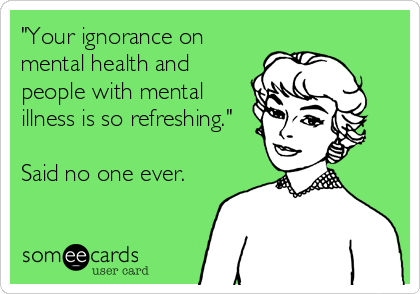 “Racing thoughts” or “rapid thought patterns” is a common symptom of bipolar mania, hypomania and mixed episodes. Rapid thoughts can be thoughts, music, and/or voices that zoom through one’s mind while jumping from one item to another. It can be overwhelming, tiresome, painful, and just downright annoying. Racing thoughts is a symptom that is most commonly associated with anxiety and bipolar disorders.
“Racing thoughts” or “rapid thought patterns” is a common symptom of bipolar mania, hypomania and mixed episodes. Rapid thoughts can be thoughts, music, and/or voices that zoom through one’s mind while jumping from one item to another. It can be overwhelming, tiresome, painful, and just downright annoying. Racing thoughts is a symptom that is most commonly associated with anxiety and bipolar disorders.
Wikipedia describes racing thoughts as follows:
“Generally, racing thoughts are described by an individual who has had an episode where the mind uncontrollably brings up random thoughts and memories and switches between them very quickly. Sometimes they are related, as one thought leads to another; other times they seem completely random. A person suffering from an episode of racing thoughts has no control over his or her train of thought, and it stops them from focusing on one topic or prevents sleeping.”*
How do you explain to someone how it feels to have racing thoughts? One way is to picture a shoebox full of ping pong balls that is being shaken. Another way is to imagine your mind hurtling through an asteroid field with things coming at you from all sides – and you cannot possibly process them all. Sometimes, your mind might get stuck on a particular thought or set of thoughts – it is like a hamster running around it’s wheel. It is almost like your mind is assaulting itself and the feeling can be completely overwhelming. I can also cause irritation, anxiety, fatigue, and in severe cases, delusion.
Methods of treatment for racing thoughts is a hotly debated topic: some suggest meditation and/or medication. However, since rapid thought patterns are just one symptom of larger disorders, it is generally agreed that the most direct way to deal with them is to treat that underlying disorder.
 Many people do not understand why people take medications for mental illness, how they work, and the stigma surrounding them. I cannot stress how excellent this article is in heading light on those issues via statements from mental health patients. For instance:
Many people do not understand why people take medications for mental illness, how they work, and the stigma surrounding them. I cannot stress how excellent this article is in heading light on those issues via statements from mental health patients. For instance:

